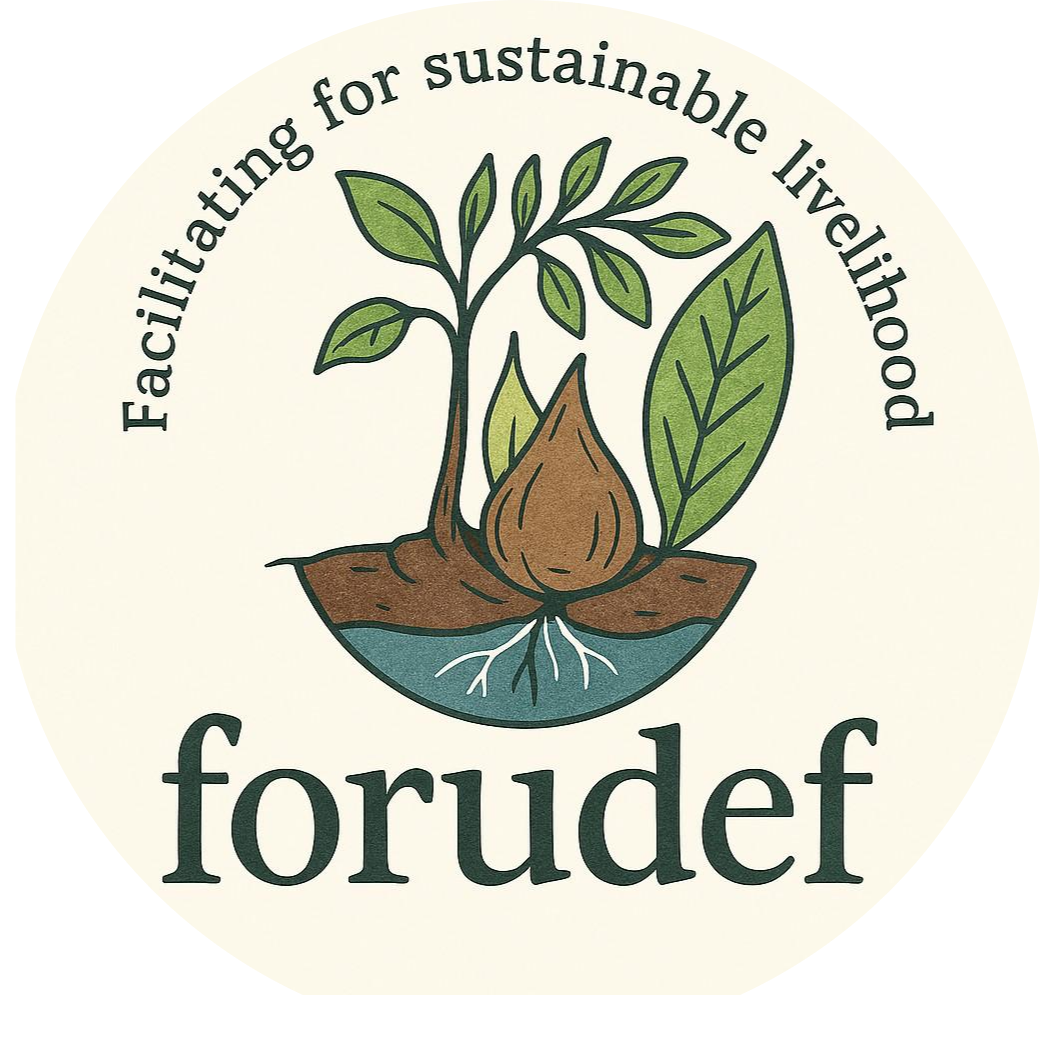By Tabe Ruth | April , 2025
Reviving Local Economies through Sustainable Non-Timber Forest Product Trade
On April 2, 2025, the Bakossi Non-Timber Forest Products Cooperative Society (BANOTIFOPCOOP) entered a new phase of growth and accountability through a successful reorganization exercise led by the Chief Registrar of Cooperatives and Common Initiative Groups (CIGs) of the South West Region. This activity was conducted in close collaboration with the Food and Rural Development Foundation (FORUDEF)—a key implementing organization—and in partnership with World Wide Fund for Nature (WWF), the primary sponsor of the cooperative’s revitalization.
The event, held in Kumba- MackLord Hotel, it brought together cooperative members, NTFP stakeholders, NTFP traders, and community-based collectors to witness this transformative moment.
Strengthening Governance for Greater Impact
The reorganization focused on formalizing BANOTIFOPCOOP’s governance structure, updating its bylaws, clarifying member responsibilities, and preparing it for full legal compliance and market engagement. The Chief Registrar emphasized the importance of effective cooperative management as a vehicle for local development.
“A well-structured cooperative gives power back to communities, ensuring they not only manage their resources sustainably but also benefit economically from them,” he noted.
FORUDEF and WWF: Champions of Sustainable Livelihoods
FORUDEF, with financial and technical support from WWF, has been instrumental in mobilizing and strengthening forest-dependent communities in the Bakossi landscape. Their involvement in this reorganization is a continuation of their commitment to promoting community-led conservation and sustainable natural resource management.
“This is more than a cooperative—it’s a movement to ensure forest products are harvested sustainably, processed locally, and sold fairly,” said a FORUDEF representative during the ceremony.
New Membership Drive: Empowering Women and Youth
As part of the reorganization, a mass registration of new members was conducted. Over 21 new villages, mostly women and youth from surrounding villages, officially joined the cooperative. They received orientation on the cooperative’s vision, their rights and duties, and the economic opportunities ahead.
“Being part of this cooperative gives us voice, training, and a chance to earn better from the work we already do,” said Samuel, a newly registered bush mango collector from Ekona Bajor.
A Vision for Inclusive Green Economies
BANOTIFOPCOOP is now set to implement programs that focus on:
- Sustainable harvesting and marketing of NTFPs such as bush mango, bitter kola, wild honey, and njansang
- Capacity-building in post-harvest techniques, quality control, and eco-packaging
- Group sales for better pricing and reduced exploitation
- Cooperative savings and loan initiatives
- Gender-inclusive leadership and forest conservation education
Looking Forward
With new leadership in place and strengthened operational systems, BANOTIFOPCOOP is ready to become a regional model for how forest-dependent communities can lead in conservation-friendly economic development. The cooperative plans to hold its first training session post-reorganization in May 2025 and launch its first group sale campaign in the upcoming bush mango season.

